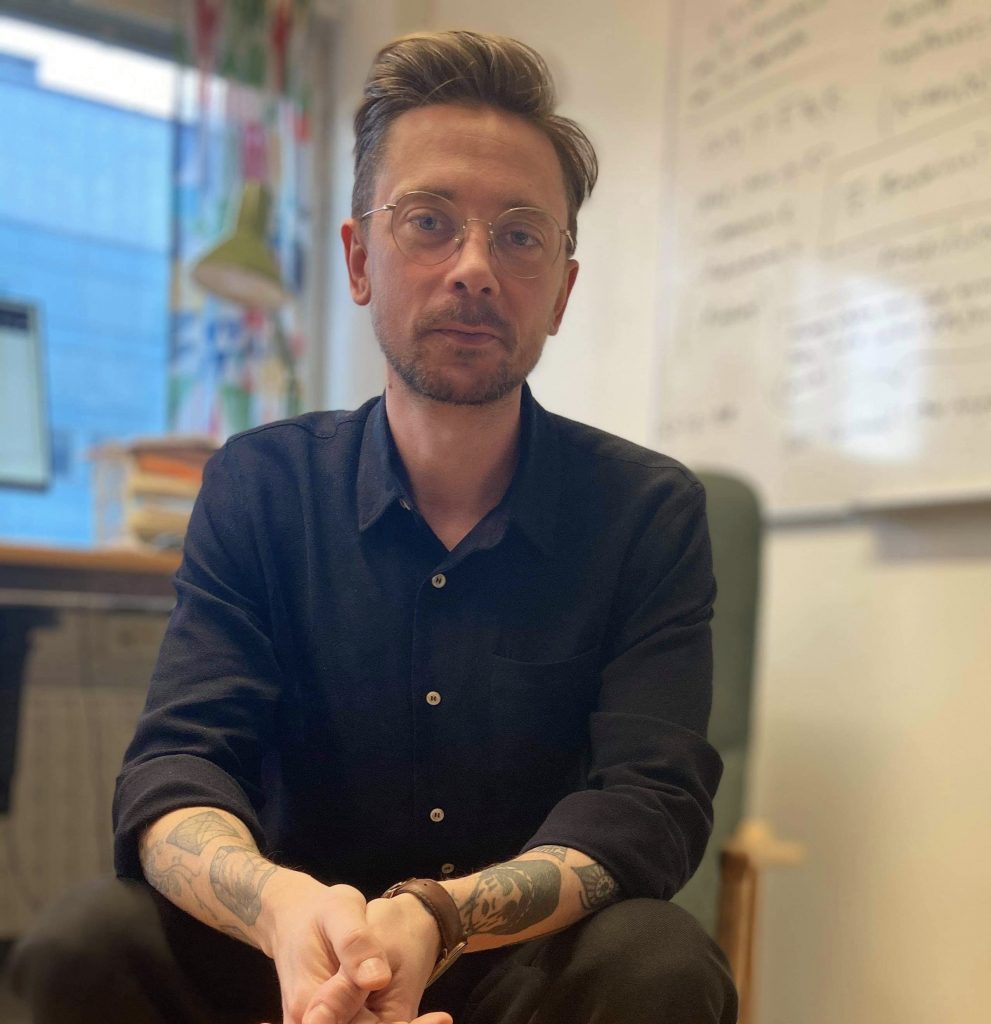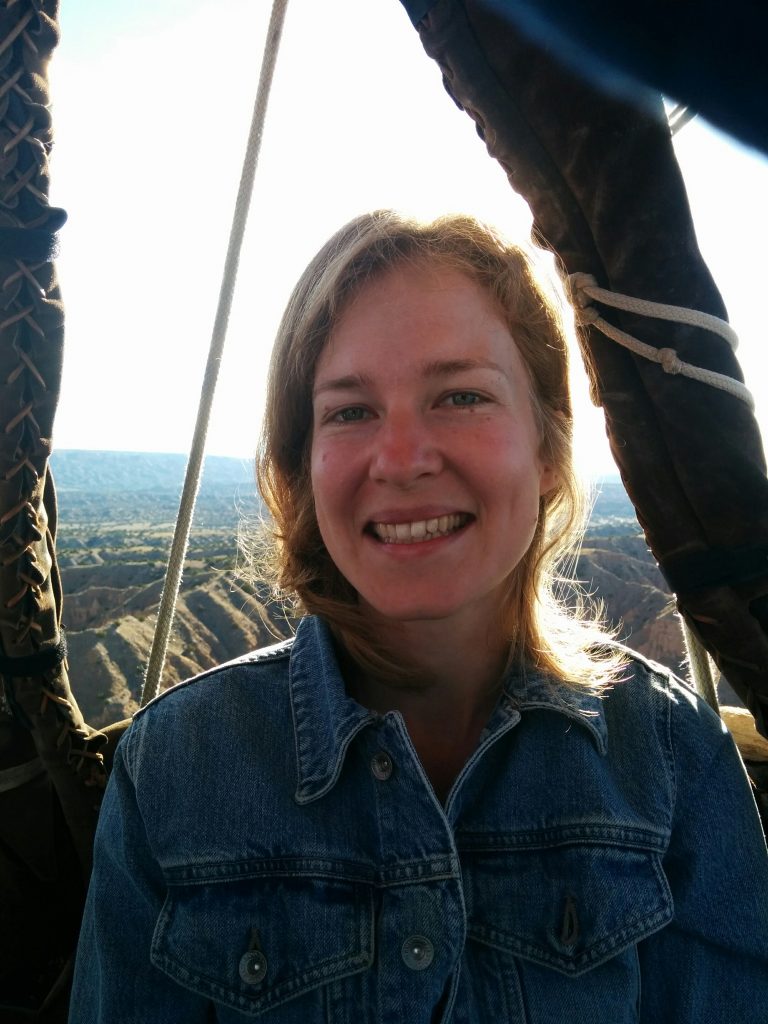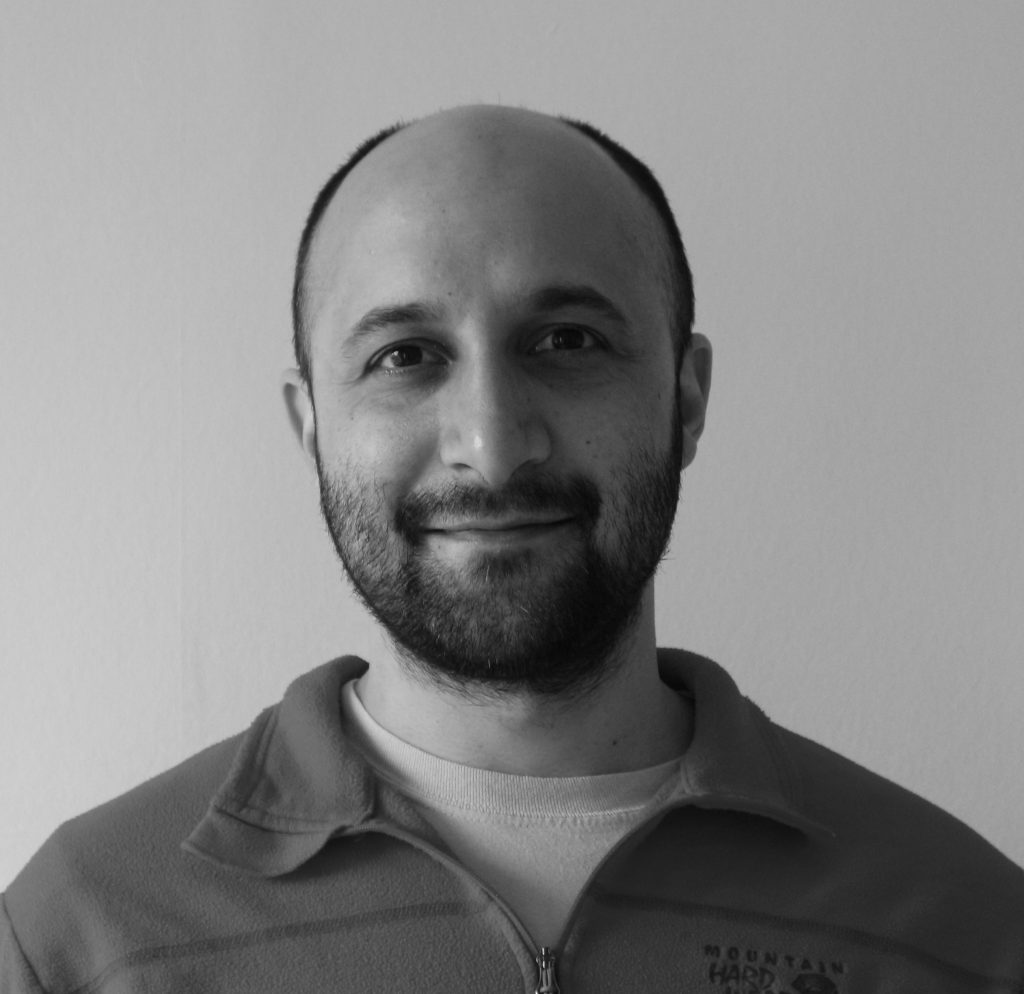
One of our project’s main objectives is to support scholars in their research relating to the New Directions in Philosophy of Cosmology project. This year, we offered Seed Fellowships to help defray research-related expenses for researchers at different career stages.
Congratulations to our 2021 Seed Fellowship recipients: Simon Allzén, Siska De Baerdemaeker, Nora Boyd, and Karim Thébault!

There is a strong belief among many cosmologists and astronomers that there exists an invisible form of matter that far exceeds the ordinary, visible matter we see in the universe by a factor of five. This belief differs from many other beliefs held by scientists because it is not the result of detecting this invisible matter – aptly named dark matter – in experiments or by observing it in the universe. The belief is instead the result of a complex series of inferential practices, connections between background theory and observations of different astronomical phenomena, as well as philosophically informed prior beliefs. In my research, I attempt to expose the philosophical underpinnings in the rather opaque justification for believing in the existence of dark matter.

The 1931 BAAS Public Debate on “The Expanding Universe”
In September 1931, at the Centenary Meeting of the British Association for the Advancement of Science (BAAS), a panel discussion was organized on “The Expanding Universe”. The event brought together almost everyone who was working in relativistic cosmology in Western Europe at the time, at a turning point in the development of the discipline: only two years earlier, Hubble had provided the first empirical evidence suggesting an evolving universe, rather than a static one. The participants were asked to present their views on the status of their field to the general public. As such, the recorded remarks show a wildly divided field, where multiple foundational debates were taking place simultaneously. The goal of this broader research project is to use the BAAS meeting as a unique window into the debates that took place during the early days of the discipline we now call relativistic cosmology.
Funding from the seed fellowship will be used specifically for research in the Willem de Sitter archives. de Sitter played a central role in the history of relativistic cosmology from the founding of the discipline in 1917 until his death in 1934, and he was one of the participants at the BAAS discussion. Although the project takes the public remarks as its primary point of departure, archival resources will help reconstruct de Sitter’s thinking as well as the setup of the BAAS meeting more generally.

The Methodology and Epistemology of 21-cm Cosmology
Much of our knowledge of the universe’s history comes from light emitted by primordial plasma before structure formation really got underway, and then from later luminous bodies like stars and the galaxies they compose. But what about the time after the plasma cooled giving way to neutral hydrogen yet before stars had a chance to coalesce and start to shine? Cosmologists call this mysterious intermediary period the “cosmological dark ages”. Studying the dark ages is a subtle art, leveraging arrays of radio telescopes to pick up 21-cm radiation—the characteristic emission of neutral hydrogen—from the dark ages. In addition to facing the usual challenges of radio interferometry, the signal of interest is inherently faint and there are extremely bright foregrounds, necessitating unprecedented methodological strategies. My project explores how a variety of radio astronomy projects tackle these challenges to learn about this dark frontier of our unfolding cosmic story.

Philosophy of Physics Society and New Open Access Journal
The Philosophy of Physics Society is being created to support the study, open discussion, and communication of research in the field of philosophy of physics. The seed fellowship will be put towards the start-up costs of a new academic, open-access journal Philosophy of Physics to be published on an Open Access basis and to run for and by the international Philosophy of Physics community through a society that will operate as a UK Charity.